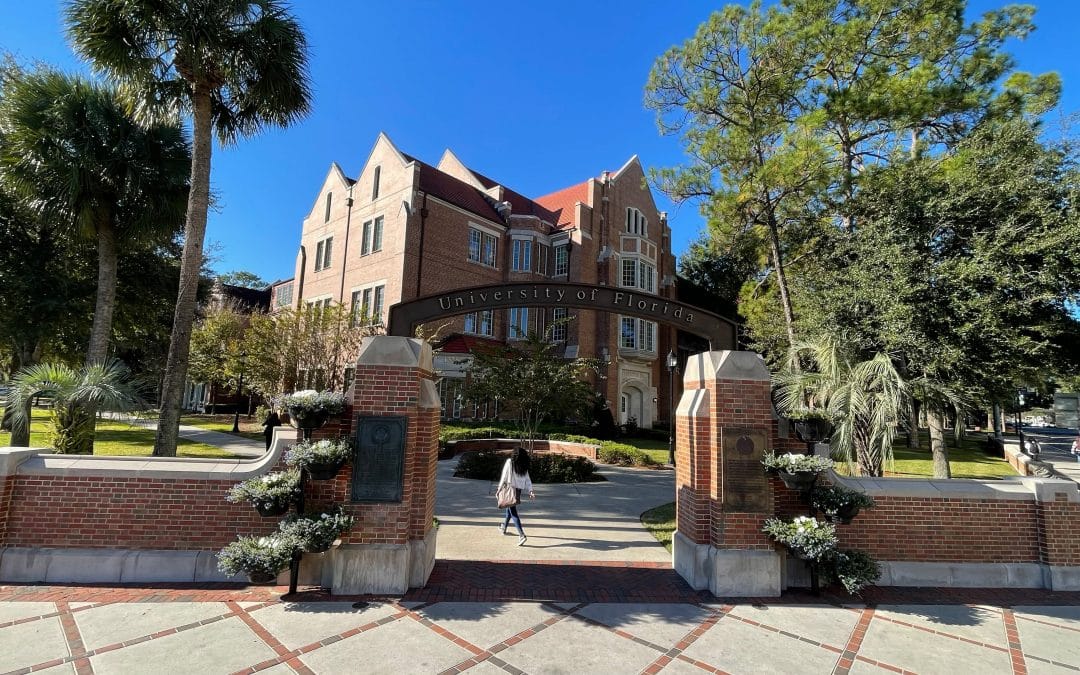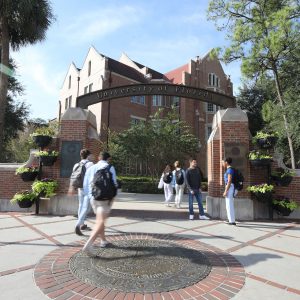Business backgrounds for every student
Unique Degree With Flexibility to Specialize
Back in the early 1990s, University of Florida students weren’t accepted into their colleges until their junior year. The demand of students trying to get accepted to the business school highlighted the need for a creative solution to give more students the learning opportunity they sought. Business faculty and staff built a curriculum that allowed junior and senior level students from every college to still take business courses.
Those efforts served as the springboard to today’s Bachelor of Arts in Business Administration (BABA) degree, which remains a unique offering among business colleges around the world. The degree differs from the traditional Bachelor of Science in Business Administration (BSBA) degree because it gives students flexibility to diversify their curriculum with 24 credits during their junior and senior year that can be customized to fit their interests. Half of these credits are business electives and the other half are from a selected area of specialization.
“Our students can choose any upper-level business courses as required business electives,” said Jaime Little, Director of Academic and Career Advising. “If a student is interested in analytics, they can take the marketing analytics course but still take the entrepreneurship or real estate courses as well. They are allowed to pick and choose these 12 credits of their curriculum.”
The BSBA program offers some flexibility, but the curriculum is mostly set for students. Each major under the BSBA degree has a designated list of courses that must be taken to earn the degree. The BABA’s flexibility is what makes it unique and allows students to pair a business foundation with an interest from another college on campus.
That interest, known within the program as an area of specialization, varies across the board. There are more than 60 areas for students to choose from, with the five most popular options currently being mass communication, wealth management, pre-law, sport management and retailing. There are even areas of specialization in several foreign languages, pre-health and ROTC options.
Students typically choose their area of specialization based on one of three reasons. First, they could want to gain industry knowledge in a field like agricultural operations management, turf grass science or pre-law. Second, they could want to learn or grow a skill set in an area, such as computer science or communication studies. Third, they could want to learn more about an area of interest, such as history or theater.
Whatever their reason, students are able to learn more about their area of specialization while gaining a business foundation to help them after graduation.
“We encourage students not to do the same things as other students,” Little said. “This isn’t a factory producing the same education for each student. It’s about finding what is interesting to them and helping them learn about it.”
The popularity of the BABA program continues to grow. During the 2022–23 academic year, 1,404 students graduated with the degree. Over the last five years, 6,037 students have graduated with the BABA degree.
The program can also remain flexible to the shifts and needs of the business world. It is frequently introducing new areas of specialization based on demand, including the recent additions of entrepreneurship, health administration, professional selling and real estate.
“We’re seeing students understand what they want their specialization to be from their freshman year,” Little said. “They know what they want to do. They see the benefits and how the BABA program is further preparing them for the future.”




